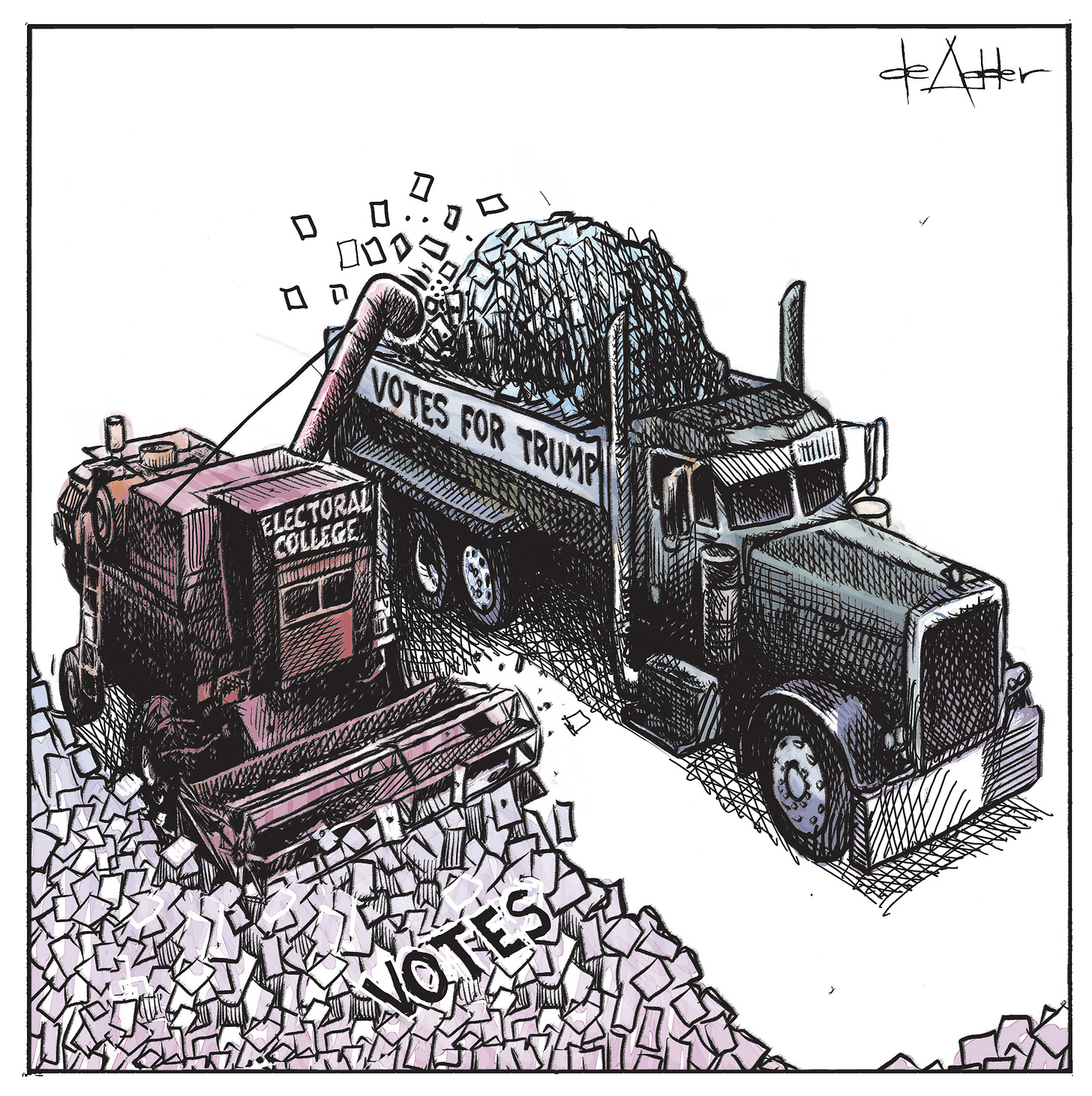Electoral college
Election day
Each State Has Electors: Every state gets a certain number of "electors" based on its population. Bigger states have more electors, smaller states have fewer. There are 538 electors total, and a candidate needs at least 270 of these votes to win the presidency.
States Vote, Winner-Takes-All (Mostly): When you vote for president, you’re actually voting to tell your state’s electors who to pick. In almost every state, the candidate who gets the most votes wins all of that state’s electoral votes. (Only Maine and Nebraska do it differently and can split their votes.)
Electors Make It Official: After the election, the electors cast their votes based on the popular vote in their state. Congress then counts these votes to officially declare the winner.
Popular Vote ≠ Always President:
Sometimes the candidate who gets the most total votes across the country doesn’t win. That’s because winning key states with enough electoral votes can matter more than just having the most individual votes overall. This has happened a few times in recent elections and is a big reason the Electoral College is controversial.
Why It’s Set Up This Way: The idea was to balance out influence so smaller states weren’t totally overshadowed by bigger ones, and to make sure presidents weren’t chosen just based on popular opinion alone.




Please edit this description, because the most important aspect is missing: each state gets a number based upon population PLUS two for their senators; therefore, a state with a small population automatically has more power per capita than a densely populated state. One vote in a place like Iowa is worth 15 votes in California. It's a system meant to favor the agricultural slave states over the then densely populated NE states - that and counting each enslaved person as 3/5 of a vote - convinced them to join the Union. It's an archaic system that must be abandoned.
Yeah, maybe it's time to change this to prevent malevolent minority control of the Senate.